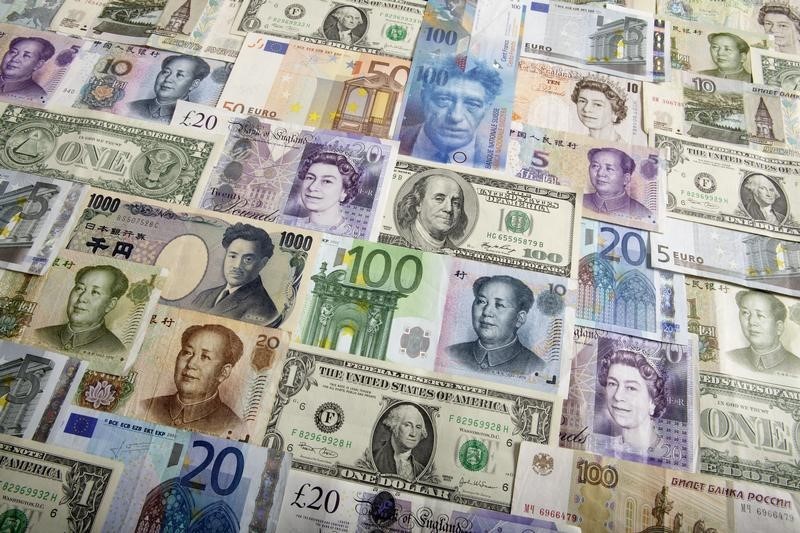By Patrick Graham
LONDON (Reuters) - A boost for commodity-reliant currencies from Tuesday’s jump in oil prices faded in early trade in Europe on Wednesday, while the dollar was up almost half a percent against the euro and yen, hitting a one-week high against the single currency.
Oil was down almost 2 percent on the day, driving roughly half percent falls in the Norwegian crown and Australian and Canadian dollars. (EURNOK=)
It remains well above $40 a barrel, which has allowed all three to recover from long-term lows hit in January.
This week's gains seem more to do with the prospect of producers imposing limits on output than a move away from the economic gloom that has pervaded financial markets this year and driven capital into the perceived safety of the yen.
But some stronger data out of China and an improved tone to stock markets on Wednesday was enough to weaken both the Japanese currency and the euro.
"Oil prices have come up and that has led to tighter credit spreads and in the end stronger equity markets," Constantin Bolz, director for FX strategy with UBS Wealth Management in Zurich, said.
"That also led to dollar-yen finding a bottom and in general to a slightly stronger dollar."
The yen was down 0.2 percent at 108.82 against the dollar, having stalled at its strongest in 17 months, 107.61 yen <JPY=>, on Monday.
The dollar rose as high as $1.1343 per euro <EUR=>, its strongest in a week, before settling at $1.1360. The dollar index of its strength against a basket of currencies was up a third of a percent at 94.236.
After the IMF’s latest warning on the world economy and the potentially “severe” impact of a British vote to leave the European Union, eyes will be on G20 meetings in Washington for signs of how policymakers will proceed from here.
The day's big set piece is the Bank of Canada’s interest rate decision and updating of its economic forecasts, which come after a strong run higher for the Canadian dollar.
No change is expected in interest rates but the meeting will be watched closely for any attempt to talk the currency down.
"Although the BoC may not have wanted CAD to appreciate 13 percent over the past three months, the BoC probably won’t want to challenge most of the key tenets of the new optimism that has made CAD the second strongest G10 currency in 2016," analysts from Canadian bank BMO said in a note.

The Canadian dollar stood at C$1.2782 per dollar <CAD=D4>, not far from an overnight high of C$1.2750 - a level last seen in July.